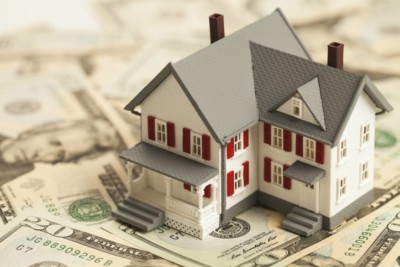Broadening equity values will spur many to seek to “trade up” to larger or newer homes, and this will have a positive impact on new housing starts, with the attendant impact on commercial construction as well.

If there is one recurring theme in my columns over all these years, it’s the role that consumer sentiment plays in driving the economy as a whole, and construction in particular. With the American consumer comprising 70% of the nation’s entire GDP, the way consumers feel has a huge impact on the health of the economy.
So recently, data published by the Board of Governors of the Federal Reserve System indicated that homeownes’ equity, which is the measure of the difference between what someone owes on their house, and what it is worth in the marketplace if it were sold, has now reach an all-time high. Nothing has a more positive impact on consumer sentiment than this metric, with the value of individual 401K retirement plans running a close second.
On a nominal and not seasonally adjusted basis, households’ owner-occupied real estate increased to $25.1 trillion totally in the first quarter of 2018, $544 billion more than the fourth quarter of 2017 and $1,674 billion more than the first quarter of 2017. The value of owners’ equity in real estate rose by $1.4 trillion over the past four quarters and reached $15 trillion in the first quarter of 2018.
On the balance sheet of households and nonprofit organizations, home mortgages, the largest share of total household loans, had negative quarterly growth rates between the fourth quarter of 2008 and the first quarter of 2015 in response to the Great Recession, but have risen modestly since then. Over the first quarter of 2018, aggregate home mortgage debt outstanding increased to $10.1 trillion on a not-seasonally-adjusted basis, $280 billion more than the same period of 2017.
Meanwhile, the Mortgage Bankers Association’s first quarter National Delinquency Report shows the delinquency rate for mortgage loans on one-to-four unit residential properties dropped to a seasonally adjusted rate of 4.63% in the first quarter of 2018, a small decrease from the same period of 2017. In particular, the serious delinquency rate, the percentage of loans that are 90 days or more past due or in the process of foreclosure, dropped to 1.47% in the first quarter of 2018. The decrease in the serious delinquency rate indicates that the recent changes in mortgage debt outstanding are largely due to the increase in mortgage originations.
And the growth in home equity is concentrated among those with the best credit ratings. During the past eleven years, as we have climbed out from a deep recession to a robust recovery, households with the strongest credit score (760+) received the majority of mortgage originations, while the share of mortgage originations for households with a relatively good credit score (720-759) has shrunk. The share of mortgage originations with a credit score equal to or exceeding 760 climbed sharply from 24% in the first quarter of 2007 to 58% in the first quarter of 2018, widening the gap between it and the share of mortgage originations in the 720-759 credit score range.
The analysis indicates that the majority of mortgage originations are obtained by those with the strongest credit scores, but home equity growth appears throughout the spectrum of homeowners, including those that are less credit-worthy. Couple that with a 3.8% unemployment rate and the many other metrics and indicators that point to a robust economy, and you can see why consumer sentiment continues to grow, which continues to be self-fulfilling.
Broadening equity values will spur many to seek to “trade up” to larger or newer homes, and this will have a positive impact on new housing starts, with the attendant impact on commercial construction as well. More new construction drives ready mixed concrete volume, so this indicator further demonstrates how strong consumer finances, and their impact on sentiment, is good for our industry.
About the Author
Pierre G. Villere serves as president and senior managing partner of Allen-Villere Partners, an investment banking firm with a national practice in the construction materials industry that specializes in mergers & acquisitions. He has a career spanning almost five decades, and volunteers his time to educating the industry as a regular columnist in publications and through presentations at numerous industry events. Contact Pierre via email at pvillere@allenvillere.com. Follow him on Twitter – @allenvillere.

